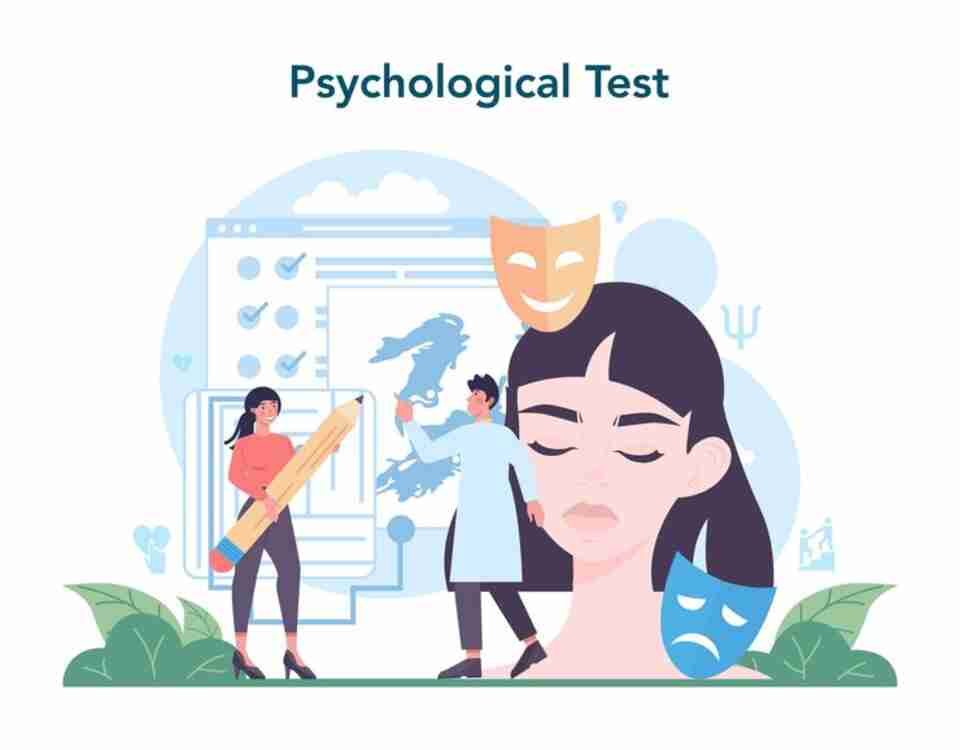
Table of Contents
ToggleWhat is Psychosis Test?
Psychosis Test is a complex mental health condition characterized by a loss of touch with reality. It is not a specific diagnosis, but rather a symptom of various underlying mental illnesses, such as schizophrenia, bipolar disorder, or severe depression. Individuals experiencing psychosis may have delusions, hallucinations, disorganized thinking, and impaired functioning.
Psychosis test typically develop gradually, with early signs including increased anxiety, social withdrawal, difficulty concentrating, and suspiciousness. As the condition progresses, more pronounced symptoms emerge, such as hearing voices or seeing things that others cannot.
It is crucial to seek early intervention and appropriate treatment for psychosis. Early identification and management can help improve outcomes and reduce the impact of symptoms on daily life.
Various diagnostic tools, including tests and assessments, are used by healthcare professionals to evaluate and determine the presence and severity of psychosis. Understanding these tests can aid in the accurate diagnosis and effective treatment of individuals experiencing psychosis.
Causes of Psychosis:
- Genetics: Psychosis has been found to have a hereditary component. People with a family history of psychotic disorders are at a higher risk of developing psychosis test themselves.
- Brain Chemical Imbalances: Imbalances in certain neurotransmitters, such as dopamine and serotonin, are believed to play a role in the development of psychosis. These imbalances can disrupt the normal functioning of the brain and contribute to the onset of psychotic symptoms.
- Environmental Factors: Certain life events or experiences can trigger psychosis test in susceptible individuals. Examples include trauma, substance abuse, severe stress, and major life changes.
- Neurodevelopmental Disorders: Conditions such as schizophrenia and bipolar disorder are associated with an increased risk of psychosis. These disorders often have a genetic component and can affect brain development and function.
- Medical Conditions: Psychosis can be caused by certain medical conditions, such as brain tumors, infections, autoimmune disorders, and neurological diseases.
- Substance Abuse: The use of drugs or alcohol can induce psychosis, especially in cases of prolonged or heavy substance abuse.
- Sleep Deprivation: Chronic sleep deprivation can lead to the development of psychosis test or exacerbate existing symptoms. Lack of sleep can disrupt normal brain function and contribute to the onset of psychotic symptoms.
- Hormonal Changes: Significant hormonal changes, such as those that occur during puberty, pregnancy, or menopause, can increase the risk of psychosis in vulnerable individuals.
- Stress: High levels of stress and chronic exposure to stressful situations have been linked to the development of psychosis test in some individuals. Stress can disrupt brain chemistry and contribute to the manifestation of psychotic symptoms.
- Antipsychotic Medication Withdrawal: Abrupt discontinuation of certain antipsychotic medications can sometimes induce a relapse or recurrence of psychosis symptoms.
It is important to note that while these factors are associated with psychosis test, it does not necessarily mean that they will cause psychosis in every individual. Psychosis test is a complex condition with multiple contributing factors, and further research is needed to fully understand its causes.

Risk Factors for Developing Psychosis:
- Family history: Having a family member with psychosis increases the risk of developing the condition. Genetic factors play a role in the transmission of certain susceptibility genes.
- Stressful Life Events: Traumatic experiences, such as abuse, neglect, or the loss of a loved one, can trigger psychosis in susceptible individuals. Chronic stress or ongoing life difficulties can also contribute to its development.
- Drug Use: Substance abuse, particularly of hallucinogenic drugs like LSD or marijuana, can induce psychotic symptoms. People with a predisposition to psychosis test are more vulnerable to the effects of these substances.
- Mental Health Disorders: Certain mental health conditions, such as schizophrenia, bipolar disorder, or major depression, are associated with an increased risk of developing psychosis. Early detection and treatment of these disorders can help prevent or manage psychosis.
- Neurological Conditions: Certain neurological conditions, such as epilepsy or brain tumors, can be linked to the development of psychosis.
- Childhood Adversity: Adverse experiences during childhood, such as physical, sexual, or emotional abuse, can increase the risk of developing psychosis later in life.
- Social Isolation: Social alienation, lack of supportive relationships, and limited social interactions can contribute to the development of psychosis.
- Urban Environment: Living in urban areas, characterized by social deprivation, overcrowding, and high crime rates, has been linked to an increased risk of psychosis.
- Immigration and Ethnic Minority Status: People from ethnic minority groups or those who have migrated to a new country may face additional stressors and challenges that increase their risk of developing psychosis test.
- Gender: Some studies suggest that males may have a slightly higher risk of developing psychosis compared to females, although the reasons for this difference are not completely understood.
It’s important to note that while these factors can increase the risk of developing psychosis, not everyone who experiences them will develop the condition. Additionally, psychosis tests can occur without any identifiable risk factors.
Symptoms of Psychosis:
Psychosis test is a mental health condition characterized by an impaired connection with reality. Individuals experiencing psychosis test may exhibit a range of symptoms that affect their thoughts, emotions, and behavior. These symptoms can vary in intensity and duration. Here are some common signs and symptoms of psychosis:
- Delusions: Delusions are false beliefs that are firmly held, even in the face of contradictory evidence. Individuals may believe that they have special powers, are being persecuted, or that they have a special mission.
- Hallucinations: Hallucinations involve seeing, hearing, or feeling things that are not present. Auditory hallucinations, such as hearing voices, are most commonly experienced in psychosis.
- Disorganized Thinking: Thoughts may become fragmented and disorganized, making it difficult for individuals to communicate coherently. Speech may be tangential or illogical.
- Disorganized Behavior: People with psychosis test may display a lack of goal-directed behavior. They may have difficulty with daily tasks, hygiene, and self-care.
- Negative Symptoms: Negative symptoms refer to a decrease or absence of normal functions, including reduced motivation, emotional expression, and social withdrawal.
- Impaired Cognition: Psychosis can affect cognitive functions such as memory, attention, and problem-solving abilities. Individuals may have difficulty concentrating or making decisions.
- Mood Disturbances: Psychosis can be associated with intense mood swings, including periods of depression, irritability, or euphoria.
- Social and Occupational Dysfunction: The symptoms of psychosis test can significantly impact an individual’s ability to maintain relationships and perform their usual activities or job responsibilities.
It is important to remember that the experience of psychosis test can vary from person to person. Some individuals may only experience mild symptoms, while others may experience more severe and disruptive manifestations. Diagnosis and treatment should always be carried out by a qualified healthcare professional.

Diagnosis of Psychosis:
- Medical and Psychiatric Evaluation: When evaluating a potential case of psychosis test, medical professionals will conduct a thorough medical and psychiatric examination. This includes discussing the individual’s symptoms, medical history, and any potential underlying physical or mental health conditions.
- Diagnostic Criteria: Psychosis test are diagnosed based on specific criteria outlined in the Diagnostic and Statistical Manual of Mental Disorders (DSM-5), developed by the American Psychiatric Association. These criteria include the presence of one or more psychotic symptoms, such as delusions, hallucinations, disorganized speech, or grossly disorganized or catatonic behavior.
- Psychological Assessment: To help identify and assess the severity of psychosis symptoms, psychological assessments may be administered. This can involve various standardized tests and questionnaires that measure cognitive functioning, mood, and overall psychological well-being.
- Clinical Interviews: In-depth clinical interviews are conducted to gather information about the individual’s experiences, including the onset and duration of symptoms, their impact on daily functioning, and any potential contributing factors or stressors.
- Family history and social history: Gathering information about an individual’s family history of mental illness or psychosis test can provide valuable insights into genetic predispositions. Assessing the individual’s social history, including relationships, employment, and education, can also help identify potential stressors or factors contributing to the development or exacerbation of psychosis symptoms.
- Laboratory Tests: Certain medical conditions or substance use can mimic or exacerbate psychosis symptoms. As part of the evaluation process, laboratory tests may be conducted to rule out any underlying medical causes or detect drug use.
- Neuroimaging Scans: MRI or CT scans may be ordered to identify any structural abnormalities or changes in the brain that could contribute to psychosis symptoms. These scans can help rule out other potential causes and provide further insights into the nature of the condition.
- Collaborative Approach: The diagnosis of psychosis often involves a collaborative approach, with multiple healthcare professionals, including psychiatrists, psychologists, and primary care providers, working together to gather information, interpret results, and formulate an accurate diagnosis.
- Differential Diagnosis: It is important to differentiate psychosis test from other conditions that may present with similar symptoms. This requires careful consideration and a thorough evaluation to rule out other mental health disorders, such as mood disorders, anxiety disorders, or substance-induced psychosis.
- Ongoing Monitoring: After a diagnosis of psychosis test is made, ongoing monitoring and assessment is crucial for tracking symptom progression, evaluating treatment effectiveness, and making necessary adjustments to the treatment plan. This involves regular check-ins with healthcare professionals and open communication to ensure optimal care and support for the individual.
Treatment Options for Psychosis:
- Medication: The primary treatment for psychosis test usually involves the use of antipsychotic medications. These medications help alleviate symptoms such as hallucinations, delusions, and disorganized thinking. Different types and dosages of antipsychotics may be prescribed depending on the severity of the symptoms and individual response.
- Therapy: Psychotherapy can be a valuable component in the treatment of psychosis test. Cognitive Behavioral Therapy (CBT) is commonly used to help individuals identify and challenge irrational thoughts and beliefs associated with their psychotic experiences. Family therapy and support groups can also be beneficial in improving communication and coping skills.
- Hospitalization: In severe cases of psychosis where the individual poses a risk to themselves or others, hospitalization may be necessary. This provides round-the-clock care, including medication management, therapy, and a safe environment until stabilization is achieved.
- Rehabilitation Programs: Psychosis can have a significant impact on an individual’s ability to function in daily life. Rehabilitation programs aim to help individuals regain personal and social skills, enhance their independence, and improve their quality of life.
- Complementary and Alternative Therapies: Alongside traditional treatments, some individuals with psychosis may benefit from complementary and alternative therapies such as yoga, meditation, art therapy, or music therapy. These approaches can help reduce stress, promote relaxation, and enhance overall well-being.
- Self-Care Strategies: Individuals with psychosis test can benefit from implementing self-care strategies to manage their symptoms and improve overall mental health. This may include maintaining a healthy lifestyle, engaging in regular exercise, getting enough sleep, managing stress, and avoiding substance abuse.
- Early Intervention Programs: Timely intervention is crucial in managing psychosis effectively. Early intervention programs provide comprehensive assessment, treatment, and support for individuals experiencing their first episode of psychosis test. These programs aim to minimize the impact of psychosis on long-term functioning and improve outcomes.
- Supportive Services: In addition to medication and therapy, individuals with psychosis often benefit from a range of supportive services. This may include case management, vocational assistance, housing support, and social services that help individuals with psychosis test achieve stability and maintain their overall well-being.
- Collaborative Care: A collaborative approach involving a multidisciplinary team of healthcare professionals, including psychiatrists, psychologists, social workers, and nurses, is essential in providing comprehensive care for individuals with psychosis. This helps to ensure coordinated, holistic treatment and support.
- Ongoing Follow-up: Regular follow-up appointments with mental health professionals are essential for individuals with psychosis. These appointments allow for the monitoring of symptoms, adjustment of medication dosages if needed, and the evaluation of treatment effectiveness. Ongoing support and monitoring contributes to long-term management and recovery.
It is important for individuals with psychosis test to work closely with their healthcare team to develop an individualized treatment plan that addresses their specific needs and goals.

Medication for Psychosis:
- Antipsychotic Medications: The primary treatment for psychosis test involves the use of antipsychotic medications. These medications help manage symptoms such as hallucinations, delusions, and disorganized thinking.
- Types of Antipsychotics: There are two main types of antipsychotic medications: typical (first-generation) antipsychotics and atypical (second-generation) antipsychotics. Both types can be effective in treating psychosis, but atypical antipsychotics are generally preferred due to their lower risk of side effects.
- Typical Antipsychotics: Typical antipsychotics, such as haloperidol and chlorpromazine, work by blocking dopamine receptors in the brain. They are effective in reducing positive symptoms of psychosis test, but they may also cause significant side effects, including movement disorders.
- Antipsychotics: Antipsychotics, such as risperidone, olanzapine, and quetiapine, also block dopamine receptors, but they also affect other neurotransmitters in the brain. These medications are often better tolerated and have a lower risk of movement disorders compared to typical antipsychotics.
- Effectiveness of Medication: Antipsychotic medications are highly effective in reducing the symptoms of psychosis test in most people. They can help improve overall functioning, reduce the risk of relapse, and enhance quality of life. However, responses to medication can vary from person to person, and finding the right medication and dosage may require some trial and error.
- Adherence to Medication: It is crucial for individuals with psychosis test to adhere to their prescribed medication regimen. Consistent medication use can help prevent relapse and promote long-term stability. However, some individuals may have difficulties with medication adherence due to side effects, forgetfulness, or lack of insight into their illness.
- Side Effects: While antipsychotic medications can be highly beneficial, they may also cause side effects. Common side effects include weight gain, sedation, dry mouth, constipation, and blurred vision. It is essential for individuals to discuss any side effects with their healthcare providers to explore potential strategies for managing them.
- Informed Decision-Making: When considering medication for psychosis test, it is important to have open and honest discussions with healthcare providers. They can provide information about the potential benefits and risks of medication, discuss different medication options, and address any concerns or questions.
- Combination Therapy: In some cases, a combination of antipsychotic medication and other medications, such as mood stabilizers or antidepressants, may be prescribed. This approach can help address underlying mood symptoms and co-occurring mental health conditions.
- Regular Monitoring: Once medication for psychosis test is initiated, regular monitoring is necessary to assess the individual’s response to the medication and monitor for any potential side effects or complications. Healthcare providers may adjust the medication dosage or switch to a different medication based on the individual’s needs and tolerability.
It is essential to remember that medication is just one component of a comprehensive treatment plan for psychosis test. Other interventions, such as therapy, social support, and lifestyle modifications, are also important for promoting recovery and overall well-being. The choice of medication and treatment approach should be individualized based on a person’s specific needs and preferences, with close collaboration between the individual and their healthcare team.
Therapy and Support for Psychosis:
- Cognitive Behavioral Therapy (CBT): One effective therapy option for treating psychosis test is Cognitive Behavioral Therapy (CBT). It helps individuals identify and change negative thought patterns and behaviors associated with their symptoms. CBT aims to enhance coping skills, improve self-esteem, and reduce distress.
- Family Therapy: Family therapy plays a crucial role in supporting individuals with psychosis. It aims to improve communication and understanding within the family unit, providing education about the illness, and offering strategies to cope with symptoms. This collaborative approach helps foster a supportive environment that can aid in recovery.
- Medication Management: Medication is often a key component of treatment for psychosis. Antipsychotic medications can help reduce symptoms such as hallucinations and delusions. It is essential to work closely with a healthcare professional to find the right medication and dosage for each individual, as responses to medication can vary.
- Peer Support Groups: Peer support groups provide a safe space for individuals with psychosis to share their experiences and gain support from others who have gone through similar challenges. These groups can help reduce isolation, provide validation, and offer practical tips for managing symptoms.
- Rehabilitation Programs: Rehabilitation programs focus on improving functioning and promoting recovery for individuals with psychosis test. These programs may include vocational training, educational support, social skills training, and assistance with independent living skills.
- Psychoeducation: Psychoeducation involves providing individuals and their families with information about psychosis test, its causes, symptoms, and treatment options. It helps increase knowledge and understanding, reduces stigma, and promotes active participation in treatment decisions.
- Case Management: Case managers work closely with individuals with psychosis test to coordinate and provide ongoing support and resources. They help link individuals to appropriate services, manage medication, and advocate for their needs within the healthcare and social service systems.
- Self-Help Strategies: Self-help strategies empower individuals with psychosis tests to take an active role in their recovery. This can include engaging in activities that promote well-being, such as exercise, practicing relaxation techniques, and maintaining a healthy lifestyle.
- Holistic Approaches: Some individuals with psychosis tests find benefit from complementary and alternative therapies, such as mindfulness-based techniques, yoga, art therapy, or music therapy. These approaches can help reduce stress, promote self-expression, and provide alternative outlets for emotions.
- Continued Support and Monitoring: It is important for individuals with psychosis test to receive ongoing support and monitoring even after symptom improvement. Regular check-ins with healthcare professionals can help identify any potential relapses or other challenges, allowing for timely intervention and support.
Note: The content provided is intended for informational purposes only and should not be taken as medical advice. It is important to consult with a qualified healthcare professional for a comprehensive evaluation and personalized recommendations for the treatment of psychosis test.

Coping with Psychosis:
Coping with psychosis tests can be challenging, but with the right strategies and support, individuals can effectively manage their symptoms and improve their overall well-being. Here are some important points to consider when coping with psychosis:
- Seeking Professional Help: It is crucial to consult a mental health professional who specializes in psychosis. They can provide the necessary evaluation, diagnosis, and treatment options tailored to individual needs.
- Take Medications as Prescribed: Medications, such as antipsychotics, are often prescribed to manage psychotic symptoms. It is essential to adhere to the prescribed medication regimen and report any side effects or concerns to the healthcare provider.
- Participate in Therapy: Psychotherapy, such as cognitive-behavioral therapy (CBT), can be beneficial in helping individuals understand and cope with their symptoms. Therapy sessions may focus on identifying triggers, managing stress, and developing coping mechanisms for managing hallucinations or delusions.
- Support Networks: Building a strong support network can be incredibly helpful. Family, friends, support groups, and online communities are essential resources that can provide understanding, empathy, and encouragement during difficult times.
- Self-Care: Prioritizing self-care activities is necessary for overall well-being. Engaging in activities that bring joy, relaxation, and stress reduction, such as exercise, meditation, hobbies, or spending time with loved ones, can help individuals manage their symptoms and maintain a positive mindset.
- Education and Information: Gaining knowledge about psychosis test, its causes, symptoms, and available treatment options can empower individuals to better manage their condition. Educational resources such as books, online articles, and workshops can provide valuable information and support.
- Sticking to a Routine: Establishing a structured daily routine can help individuals with psychosis test maintain stability. Regular sleep schedules, balanced meals, and structured activities can contribute to a sense of stability and reduce stress.
- Stress Management: Learning effective stress management techniques can be crucial for individuals with psychosis. Techniques such as deep breathing exercises, mindfulness practices, and stress reduction activities can help manage and alleviate symptoms.
- Avoiding Alcohol and Illicit Drugs: Substance use can worsen psychotic symptoms and interfere with the effectiveness of medications. It is essential to avoid alcohol and illicit drugs to maintain stability and prevent potential relapses.
- Open Communication: Maintaining open communication with healthcare providers, family members, and friends is vital. Sharing concerns and discussing any changes in symptoms or treatment can help ensure appropriate support and intervention when needed.
By implementing these coping strategies and seeking the necessary support, individuals with psychosis tests can lead fulfilling lives and effectively manage their symptoms. Remember, it is essential to consult a healthcare professional for personalized guidance and treatment.
Supporting a Loved One with Psychosis:
When a loved one is diagnosed with psychosis test, it can be overwhelming and challenging to navigate the complexities of their condition. Here are some important ways you can support someone with psychosis:
- Education and Understanding: Take the time to educate yourself about psychosis test, its symptoms, and treatment options. This will help you better understand what your loved one is experiencing and how to provide appropriate support.
- Open and non-Judgmental Communication: Create a safe space for your loved one to express their feelings and experiences. Listen attentively without judgment, offering empathy and validation.
- Encouraging Treatment: Support your loved one in seeking and adhering to treatment, such as medication, therapy, and other interventions recommended by healthcare professionals.
- Building a Support Network: Help your loved one connect with support groups, therapy groups, and other individuals who have experienced psychosis. This can provide a sense of community and understanding.
- Establishing Routines: Encourage the development of regular routines to help provide stability and reduce stress. This includes promoting healthy sleep patterns, regular exercise, and a balanced diet.
- Identify Triggers and Coping Strategies: Work with your loved one to identify triggers that may exacerbate their symptoms and help them develop coping strategies to manage these triggers effectively.
- Encouraging Self-Care: Promote self-care activities, such as engaging in hobbies, practicing relaxation techniques, and taking time for themselves. Encourage them to prioritize their mental and physical well-being.
- Patience and Support: Recognize that recovery from psychosis test is a gradual process and may involve setbacks. Offer patience, understanding, and unwavering support throughout their journey.
- Seeking Professional Help: If at any point you feel overwhelmed or unsure about the best way to support your loved one, don’t hesitate to reach out to mental health professionals for guidance and assistance.
- Take Care of Yourself: Remember that supporting a loved one with psychosis test test can be emotionally demanding. It is essential to prioritize your own self-care and seek support for yourself as well.
By understanding their experiences, offering support, and promoting self-care, you can play a crucial role in helping your loved ones navigate their journey towards recovery from psychosis.
